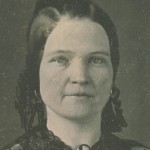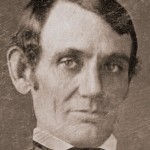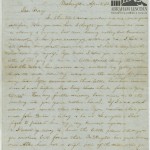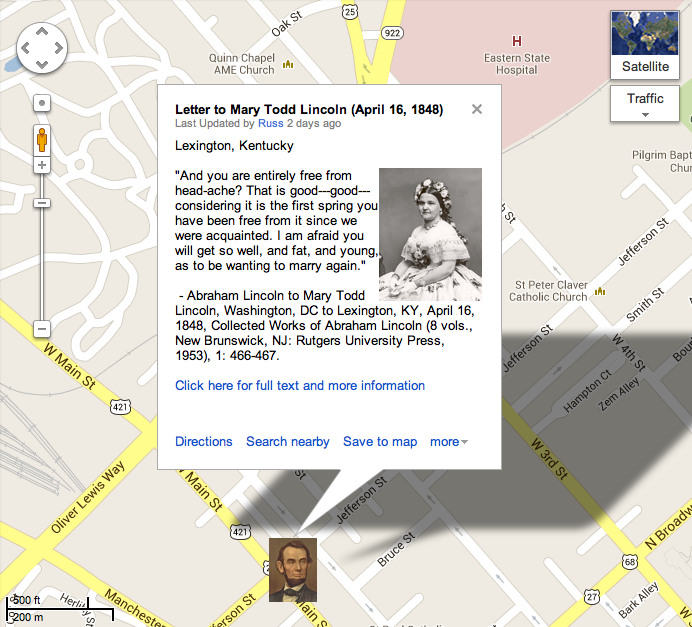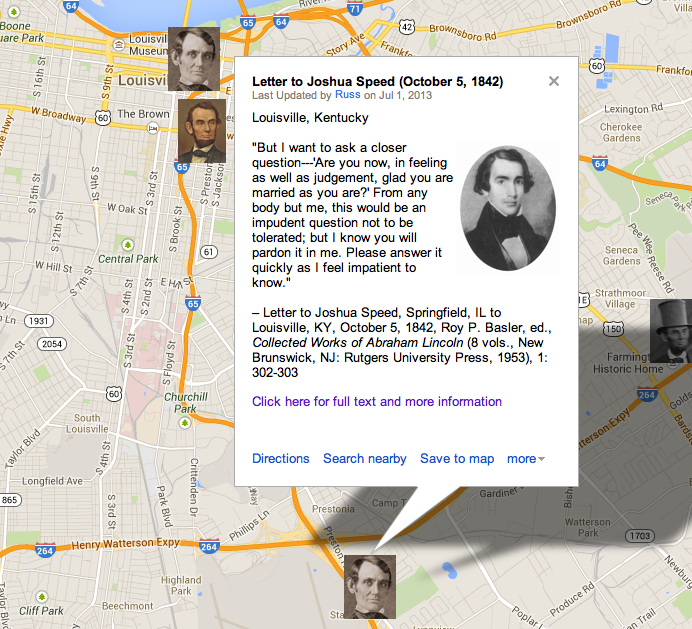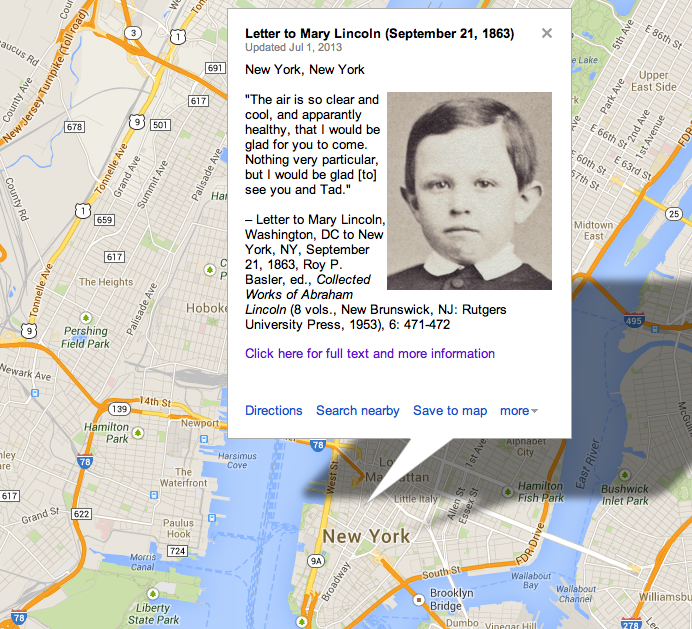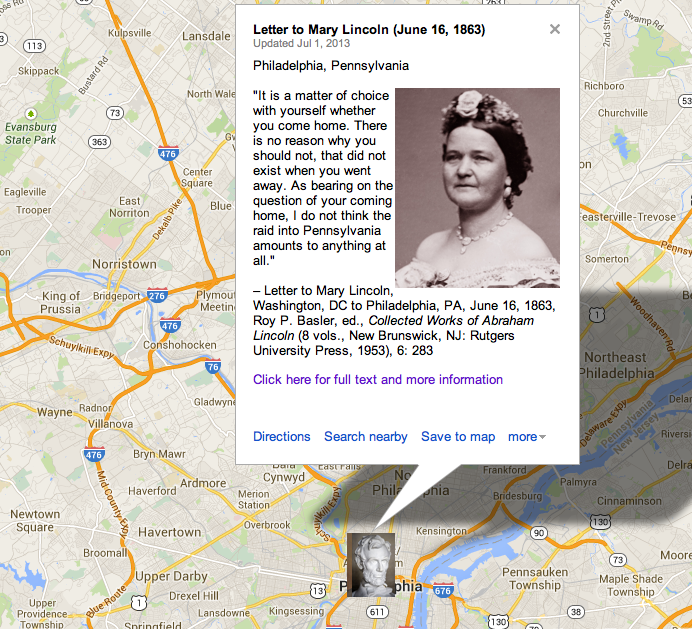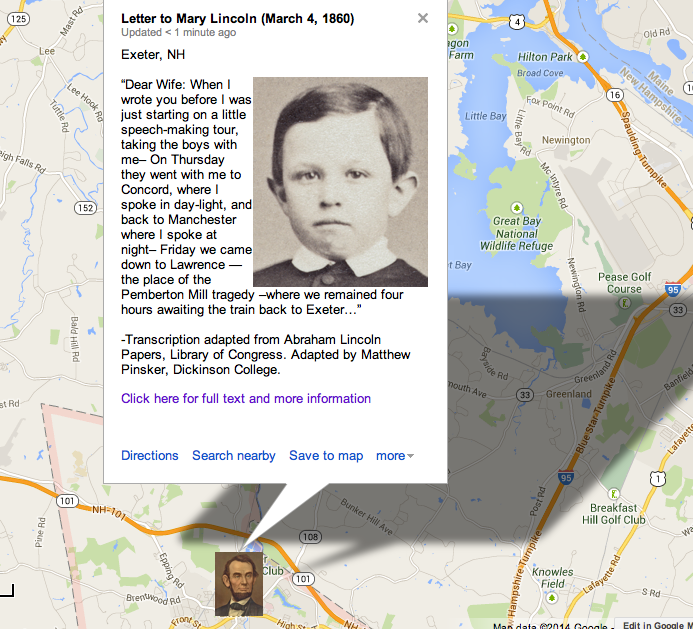Ranking
#12 on the list of 150 Most Teachable Lincoln Documents
Annotated Transcript
“In this troublesome world, we are never quite satisfied….”
Audio Version
On This Date
HD Daily Report, April 16, 1848
Image Gallery
- Mary Todd Lincoln
- Lincoln in 1846
- Image of 1848 Letter
Close Readings
Custom Map
Other Primary Sources
“Multiple Classified Advertisements,” National Daily Intelligencer, August 14, 1848
Letter from Mary Todd Lincoln to Abraham Lincoln, November 2, 1862
Letter from Abraham Lincoln to Mary Todd Lincoln, June 16, 1863
Letter from Abraham Lincoln to Mary Todd Lincoln, September 21, 1863
How Historians Interpret
“The subject of much gossip in Springfield, they incorrectly represented the Lincoln’s marriage. For all their quarrels, they were devoted to each other. In the long years of their marriage Abraham Lincoln was never suspected of being unfaithful to his wife. She, in turn, was immensely proud of him and was his most loyal supporter and admirer. When someone compared her husband unfavorably to Douglas, she responded stoutly: ‘Mr. Lincoln may not be as handsome a figure…but the people are perhaps not aware that his heart is as large as his arms are long.'”
–David Herbert Donald, Lincoln (New York: Simon & Schuster, 1995), 108
“Unlike her husband, Mary Lincoln enjoyed little popularity. By April 1848, she had returned to her father’s home in Lexington. She may have been lonely, for there were few congressional wives with whom to socialize. (In 1845, only 72 of the 221 members of the House were accompanied by family members.) At the boarding house, Mary Lincoln ‘was so retiring that she was rarely seen except at meals.’ Some boarders at Mrs. Sprigg’s, like those in the Globe Tavern five years earlier, found her disagreeable. On April 16, 1848, Lincoln wrote her saying that all the guests at Mrs. Spriggs’s ‘or rather, all with whom you were on decided good terms – send their love to you. The others say nothing.’ Lincoln had mixed feelings about his wife’s absence … (Other congressional spouses may have envied Mary Lincoln her departure. One observed: ‘I do not believe that Washington is very pleasant to any of the Member’s wives. I have conversed with several whom I have met and all seem tired of it and wish to go home.’)”
“Details about mundane matters and dreams blotted the pages. They reveal just how much the couple cared for one another. Mary conveyed with some relief that she was not suffering from her familiar complaint of migraines. Lincoln wrote back: ‘You are entirely free from headache? That is good – good – considering it is the first spring you have been free from it since we were acquainted.’ He continued with some joviality: ‘I am afraid you will get so well and fat and young as to be wanting to marry again.’ This kind of banter suggests an easy and comfortable relationship, built upon a solid foundation – as in other correspondence Mrs. Lincoln might joke about her ‘next husband’ or wanting to be rich enough to travel, which might not have been mentioned if they were sore points. Lincoln even added playfully: ‘Get weighed and write how much you weigh.’ This confident intimacy shows the depths of the couple’s bond.”
— Catherine Clinton, Mrs. Lincoln: A Life, (New York: HarperCollins Publishers, 2009), 84
Further Reading
Searchable Text

